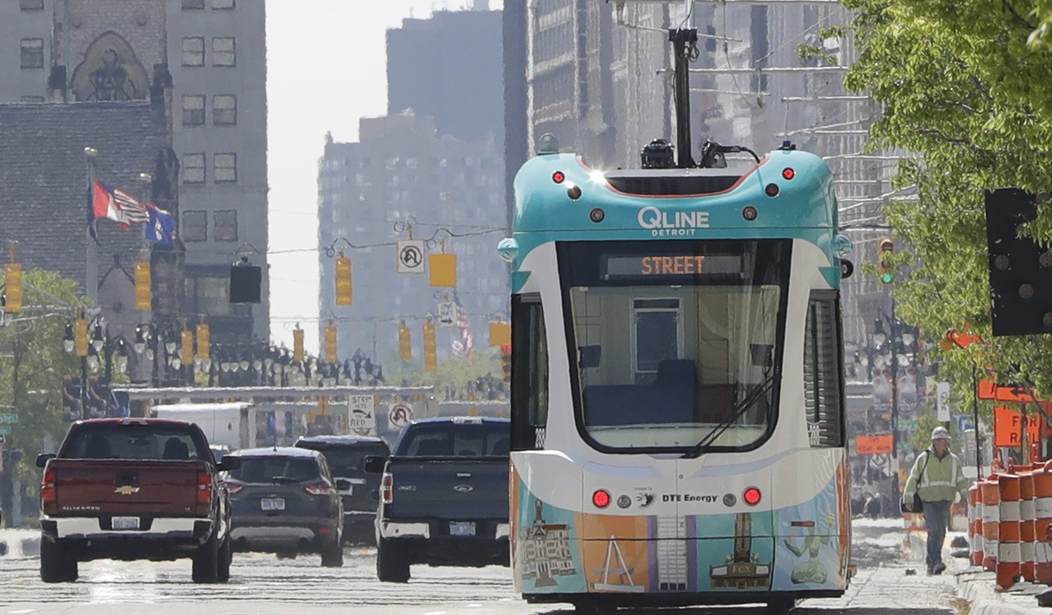WASHINGTON — Detroit, one of the Great Recession’s hardest-hit cities, is making a comeback driven by investments in small business and local entrepreneurs, according to recent trends.
Michigan accounted for 50 percent of all job losses in the U.S. between 2000 and 2010, dropping the state from 18th to 39th in per capita income, according to the Michigan Turnaround Program. Detroit and southeast Michigan were particularly disenfranchised by the Great Recession, which resulted in the collapse of the state’s automobile industry.
But according to statistics, Detroit added jobs every year between 2010 and 2015, and the Motor City is now adding employment faster in some industries than the national average, most notably in motor vehicle parts production, credit intermediation, scientific research and development and insurance.
One of the driving forces for this turnaround is the New Economy Initiative, a $100 million philanthropic fund set up in 2007 to develop entrepreneurial infrastructure in southeast Michigan. Ten organizations signed onto the deal, including Ford Motor Co., the Kellogg Co. and the Kresge Foundation, which committed $25 million each. The initiative has resulted in direct assistance to more than 4,400 companies, helped launch 1,600 companies, created more than 1,800 jobs and helped produce nearly $3 billion in economic output.
According to Kresge’s 2017 Detroit Reinvestment Index, 84 percent of national business leaders now believe that Detroit can recover and reclaim its status as a great American city. Rip Rapson, president and chief executive officer at Kresge, during a panel appearance at the Brookings Institution on Wednesday, described a “remarkably positive picture” for Detroit.
He listed a handful of drivers for the reversal: Large corporate anchors are moving to downtown Detroit and reviving the commercial real estate market. Quicken Loans alone has moved more than 1,500 employees into the urban core. He also listed dramatic investments in public spaces like the Detroit Riverfront, the Dequindre Cut bikeway and walkway, Belle Isle and Eastern Market, while describing an explosion in small-business and entrepreneurial incubators. Last week, Detroit celebrated the opening of the QLine, a streetcar that runs about 3.5 miles from the heart of downtown to midtown Detroit. According to Kresge, a total of $7 billion will be invested along the QLine’s route, with two-thirds of that money already spent. Detroit also is eagerly awaiting the opening this fall of Little Caesars Arena, which will serve as the new home to the Detroit Pistons and Detroit Red Wings.
Pamela Lewis, director of the New Economy Initiative, said Wednesday that an important factor for the initiative’s success has been its lack of discrimination, explaining that the opening of a new coffee shop carries about the same weight as the launch of a new high-tech firm. About $30 million of the fund has funneled into small-business investment in Detroit, she said, and it has resulted in 60 percent female ownership and 65 percent ownership by people of color. Minority ownership is a return to old trends in Detroit, which in the 1960s had more African-American small-business owners than any other city in America, according to Rapson. Someone that embodies that entrepreneurial spirit, Lewis said, is Anthony Hatinger, co-founder and chief executive officer for Detroit Ento, a local farm and manufacturing firm that specializes in rearing crickets and other insects locally for human food, livestock feed and pharmaceutical purposes.
Hatinger said during Wednesday’s event that his company is still trying to find its place while hurdling various legislative, capital and acceptance barriers. Started in the summer of 2015, Detroit Ento’s goal is to develop an entire supply chain locally. While the company is currently doing the “regulatory dance,” Hatinger said it has found niches in the culinary sector, and is also working with Detroit public schools to develop a learning platform that would ultimately create job skills for the future. He expressed support for investing in ideas, infrastructure and people.
“We know that we have very few answers, but we’re learning in the process,” Hatinger said.
Also appearing on the panel was Janis Bowdler, a small business and community development specialist with JPMorgan Chase. The global financial firm has launched Small Business Forward, a $75 million initiative that focuses on female-, minority- and veteran-owned small businesses. She said that while small businesses are creating the greatest share of new jobs, it’s also an area in which the U.S. is losing many jobs. She warned of a reversal in trends if cities don’t cut red tape on permitting and licensing and invest in infrastructure, both of which would foster small business growth.
“If we keep putting those roadblocks in front of them, it will be really difficult to see some businesses that have the potential to scale, to grow,” she said.
Rapson said a number of gaps still exist between small-business needs and Detroit’s offerings. Those include a need for skilled workers, improved quality in local neighborhoods and a robust base of customers with spending power. The city also “needs optimism” to continue its growth, he said.








Join the conversation as a VIP Member